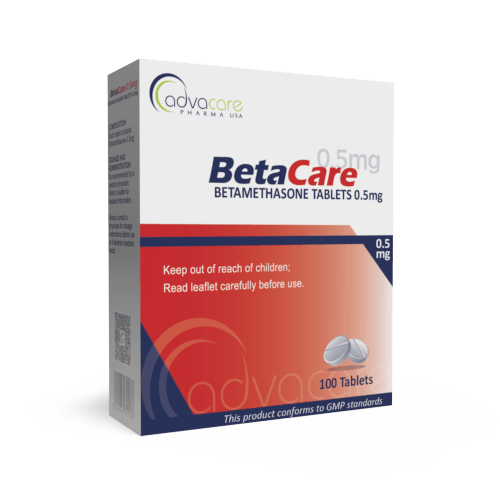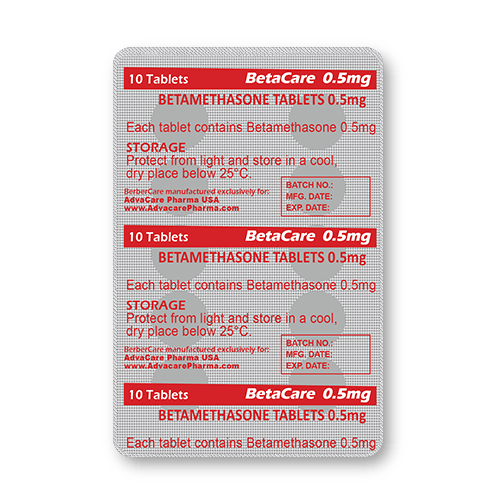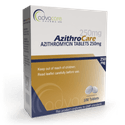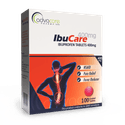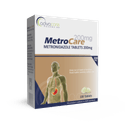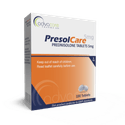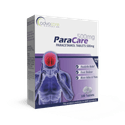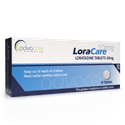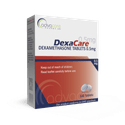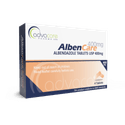- Home›
- Pharmaceuticals›
- Pharmaceutical Tablets›
- Betamethasone Tablets
Betamethasone Tablets
Dosage
Packaging
What is Betamethasone?
Active Ingredients: Betamethasone
Betamethasone Tablets are a steroid drug used to treat conditions associated with inflammation, such as asthma, arthritis, allergies, Crohn's disease, and ulcerative colitis. It is used in the treatment of many types of disorders, such as that of the blood, skin, liver, eye, or nervous system.
Betamethasone is classified as a corticosteroid. It is a moderately potent glucocorticoid with anti-inflammatory and immunosuppressive properties, though it displays negligible mineralocorticoid activity. Unlike other drugs with these effects, betamethasone does not cause water retention. Betamethasone is also used in conjunction with antihistamines to reduce irritation.
Betamethasone Tablets are manufactured with a dosage of 0.5mg. These tablets are packaged in blister packs and available in boxes of 100 tablets.
AdvaCare Pharma also produces a wide range of products with betamethasone, including fixed-dose Betamethasone + Dexchlorpheniramine Maleate Tablets, Betamethasone Sodium Phosphate Injection, and topical treatments such as Betamethasone Cream, Betamethasone Dipropionate + Salicylic Acid Lotion, and Clotrimazole + Betamethasone Cream. Topical Betamethasone Cream and ointment are listed on the Essential Medicines List as compiled by the World Health Organization.
AdvaCare Pharma is the manufacturer and exporter of Betamethasone Tablets. We routinely inspect our production facilities to ensure our products meet quality and safety standards. We offer a wide range of high-quality and cost-effective medications that are available for distribution.
Why are we a leading Betamethasone manufacturer?
As a reputable Betamethasone manufacturer, we are dedicated to ensuring that GMP guidelines and standards strictly apply to the manufacture of our entire range of 200+ pharmaceutical treatments in tablet dosage form.
AdvaCare Pharma is an American pharmaceutical company committed to the manufacture of high-quality, affordable pharmaceuticals for a global market. The extensive international network that we partner with includes pharmaceutical distributors, hospitals, pharmacies, and a variety of other medical institutions. Our vision is to manufacture Betamethasone Tablets, and other quality-assured oral solid treatments, that get into the hands of those that need them most.
Uses
What is Betamethasone used for?
It is used to reduce symptoms related to inflammation, like swelling, redness, or itching. It is used in the treatment of a variety of conditions, such as:
- Asthma
- Arthritis
- Allergies and hypersensitivity reactions
- Crohn's disease
- Ulcerative colitis
- Blood disorders
- Adrenal insufficiency and adrenal gland disorders
- Corticosteroid-responsive dermatoses
Betamethasone may also be used to treat the inflammation related to bacterial meningitis, mountain sickness, hirsutism, septic shock, and spinal cord injury.
How should Betamethasone Tablets be used?
This medication is intended to be taken orally. Betamethasone Tablets should be taken as prescribed by a physician. It is recommended to take the pills with a full glass of water at mealtime.
How should Betamethasone Tablets be stored?
This medication should be stored in its original packaging until use. It is recommended to store the unused medication in a dark, dry location below 30°C.
What dose should be taken?
Adult Dosing Dosage may vary based on different medical indications:
- For inflammatory conditions, the usual dose is 0.6-7.2mg per day, taken in 2-4 divided doses. The exact dosage is individualized based on the disease, its severity, and the patient’s response to treatment.
- For rheumatoid arthritis, the usual dose is 0.5-2mg per day. For other conditions, the usual dose is 1.5-5mg per day for 1-3 weeks. Then the dose should be reduced gradually until discontinuation. The lowest effective dose should be used.
- For short-term treatment of allergic and inflammatory disorders, the usual dose is 2-3mg daily for the first few days. The dose should then be decreased by 0.25mg or 0.5mg every 2-5 days.
- For endocrine disorders, such as adrenal insufficiency, congenital adrenal hyperplasia, and pituitary disorders, the usual dose is 0.6-7.2mg, divided and taken 2 or 4 times per day.
Pediatric Dosing Recommended dosage for children may vary based on different medical conditions:
- For inflammatory conditions, the usual dose for children under 12 years old, is 0.0175-0.25mg/kg per day, divided and taken every 6-12 hours. Follow adult dosing guidelines for children over 12 years old.
- For adrenal insufficiency, the usual dose for children under 12 years old is 0.0175-0.25mg/kg per day, divided and taken every 6-12 hours. The lowest dose should be used as a starting dose. For children over 12 years old, follow guidelines for adult patients.
The dosage is based on medical condition, response to treatment, age, and weight. Refer to a doctor or pharmacist for guidelines on dosage. Do not exceed what they advise.
Who can use Betamethasone?
Betamethasone Tablets can be given to adults and children, but caution is advised for specific groups of patients.
Pregnant Though Betamethasone can be taken by pregnant women, it is important to note that the drug does cross the placenta. There are other steroids, such as prednisolone, that do not cross as much as Betamethasone. Steroids for inflammatory conditions are commonly used in pregnancy, but extra monitoring may be necessary, as steroids may cause premature birth or growth problems. Any drug use during pregnancy should be advised by a healthcare professional.
Breastfeeding The use of Betamethasone Tablets during breastfeeding is generally not recommended unless absolutely necessary, and only under a healthcare professional's guidance.
Children Betamethasone is considered safe for use in pediatric patients. It is important to note that this population has an increased risk of hypercortisolism and suppression of the hypothalamic-pituitary-adrenal (HPA) axis. The lowest possible dose should be used during treatment.
Geriatric There have not been appropriate studies performed to properly assess geriatric-specific problems due to treatment with Betamethasone.
What happens if a dose is missed?
If a dose of Betamethasone is forgotten, it should be taken as soon as possible. If it is nearly time for the next dose, the missed dose should be skipped. Never take 2 doses at the same time.
Can Betamethasone be stopped abruptly?
It is not advised to suddenly stop taking Betamethasone Tablets. When a corticosteroid is stopped abruptly, withdrawal symptoms may occur. A doctor or healthcare professional will be able to determine a tapering schedule in order to reduce the dose slowly in order to stop treatment. This is particularly important after high-dose or long-term treatment.
What are the symptoms of withdrawal from Betamethasone?
When this medication is stopped suddenly without tapering, it is possible for the original treated symptoms to reappear. Withdrawal side effects may also occur. Some common withdrawal symptoms include severe fatigue, weakness, body aches, and joint pain. Withdrawal is more common if treatment has continued for more than 3 weeks or during high-dose therapy.
Should healthcare professionals regularly monitor any specific parameters during treatment with Betamethasone?
It is recommended to monitor blood pressure, serum potassium levels, and glucose, growth in children. Patients should be advised to report any signs and symptoms of infection. During long-term usage, it is important to monitor for signs of HPA axis suppression or adrenal insufficiency. It is also advised to routinely perform an ophthalmic examination during long-term therapy.
Side Effects
As with all pharmaceuticals, some unwanted effects can occur from the use of Betamethasone Tablets.
Common side effects include, but may not be limited to:
- indigestion
- issues with sleeping
- restlessness
- increased sweating
- hair growth
- weight gain
Consult a doctor if the following serious effects occur:
- signs of an infection (e.g. fever, sore throat, cough)
- signs of high blood sugar (e.g. confusion, excessive thirst or hunger, peeing more than usual)
- signs of Cushing’s syndrome (e.g. weight gain in upper back or stomach, slow wound healing)
- signs of an adrenal gland problem (e.g. general malaise, dizziness, muscle weakness)
- low potassium levels, muscle cramps, muscle pain or weakness
- severe stomach pain or back pain, diarrhea
- edema
- blurry vision
- unexplained bruising or bleeding
- mood changes
- depression, anxiety
- paranoia or hallucinations
Seek immediate medical treatment if signs of a serious allergic reaction occur.
The long-term use of steroids such as Betamethasone is associated with:
- osteoporosis
- diabetes
- eye problems like glaucoma and cataracts
For a comprehensive understanding of all potential side effects, consult a medical professional.
If any symptoms persist or worsen, or you notice any other symptoms, please call your doctor immediately.
Precautions
Do NOT use Betamethasone Tablets if:
- You are hypersensitive or allergic to betamethasone or any other ingredients in the tablet.
- You have a systemic fungal infection.
- You have had a traumatic brain injury.
- You are planning to receive a live, attenuated vaccine.
Betamethasone may not be suitable for people with certain conditions, so it is important to consult with a doctor if:
- You are pregnant.
- You have cirrhosis or renal insufficiency.
- You have hypertension or hypothyroidism.
- You have a history of peptic ulcers, ulcerative colitis, or diverticulitis.
- You have myasthenia gravis, myopathy, or osteoporosis.
- You have glaucoma or other eye problems.
- You have epilepsy, diabetes, or TB.
- You or your family have a history of mental health problems.
Due to possible drug interactions, consult with your doctor about any medications, supplements, or herbal products that you are taking before your treatment. Dosages may need to be changed or additional monitoring or considerations may be necessary.
It is not recommended to drink licorice tea or eat real licorice during treatment with this medication. Though it has not been formally studied, there have been reports of natural licorice increasing the effect and risk of side effects due to betamethasone.
Betamethasone may interfere with the results of certain lab tests. It is known to suppress reactions such as wheals or flare during skin tests. It is recommended to advise lab staff of recent therapy with betamethasone before any laboratory tests.
It is generally considered safe to drive or operate machinery while undergoing treatment with betamethasone. As some side effects may impair the ability to drive (e.g. blurry vision), it is important to see how the medication affects you before driving or operating machinery.
Do not suddenly stop taking this medication, as withdrawal symptoms may occur.
Steroids, such as betamethasone, may weaken your immune system. This may increase the risk of getting an infection or the worsening of a current infection.
References
Short-course, low-dose oral betamethasone as an adjunct in the treatment of acute infective sinusitis: a comparative study with placebo
The objective of this double-blind, randomized, placebo-controlled study was to assess the effect of a short course of low-dose oral corticosteroids as an adjunct to antimicrobials in patients with acute infective sinusitis.
It included 42 patients with a clinical diagnosis of acute infective sinusitis and was performed at three primary healthcare sites in South Africa over a period of 11 months. It included two groups of patients, each containing 21 individuals. One group received betamethasone 1mg orally, and the other group received placebo tablets. All patients also received an antibiotic (amoxicillin-clavulanic acid) for 5 days.
The results were interpreted based on the daily symptoms from the patients over a period of 5 days and were examined by the authors on the day of the diagnosis (day 0) and on the second visit (day 6).
Symptoms like headache, facial pain, nasal congestion, and dizziness improved significantly from baseline in the group that received betamethasone compared with the placebo group over 5 days of treatment (p = 0.028, p < / = 0.047, p < / = 0.04 and p < / = 0.051, respectively). The results also showed that percussion tenderness improved significantly (p = 0.049) and clearance of purulent secretions almost reached significance (p = 0.058) in the treatment group.
The findings indicate that patients with acute sinusitis besides benefiting from the usual antimicrobial drugs can also benefit from oral corticosteroids like betamethasone.

You might be interested in...
Why AdvaCare Pharma?
As an industry leader, we are aware of our responsibility to provide affordable and sustainable solutions to improve healthcare worldwide.
